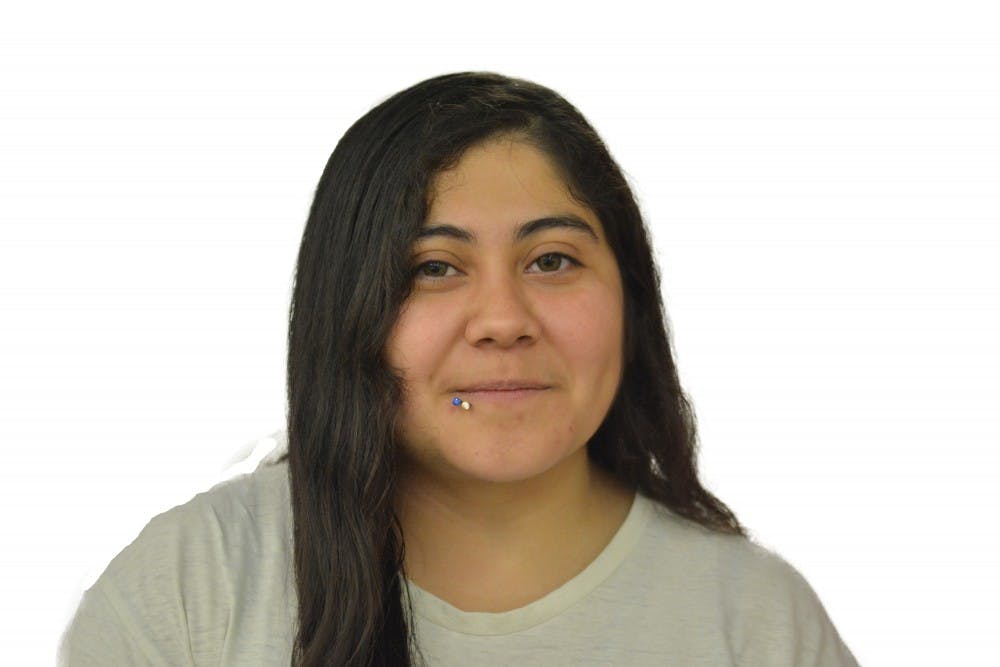I f you’re at all familiar with the acronym LGBT, you should know it stands for Lesbian, Gay, Bisexual and Transgender . You might also know that this acronym is sometimes played with to show the disproportionate representation the various groups get, a la G LBT . It is a criticism of the queer community in general that we sometimes ignore the problems facing those most marginalized within our umbrella.
A lot of queer representation, whether in the media or in policy initiatives, focuses on gay and lesbian people, which are both monosexualities — they denote attraction to only one gender. Sometimes, these representations use explicitly exclusionary language — equating gender to genitilia, equating same-sex marriage to gay marriage — or outright ignore non-binary or non-monosexual people.
As someone who identifies as non-monosexual, I am familiar with some of the unique challenges the community faces, coming from both the heterosexual community and even within the queer community.
Both bisexuality and pansexuality are forms of attraction to more than one gender and identifying as such can lead to a variety of issues, including discrimination.
Bisexual people report higher rates of poverty and mental and physical health issues. They report lower levels of community connection, even within the queer community. Non-monosexual women face high levels of sexual harassment, due in part to the myth that they are somehow more sexually promiscuous, deviant and/or available than their peers. It is unsurprising, but still upsetting, that they also report higher rates of sexual assault and abuse compared to both heterosexuals and lesbians.
While I believe that these cultural myths about the behavior of non-monosexual women are dangerous and should be eradicated, I also want to make clear that even if they were true, they do not justify the abuse inflicted on non-monosexual women. They are part of the greater patriarchal pressures affecting women, and should be issues all feminists take up.
Aside from these outright aggressions, non-monosexual people also face more subtle and daily forms of discrimination as well. One prevalent form is stereotypes of what non-monosexuality entails. Non-monosexual does not mean promiscuous. It does not mean unfaithful. It does not mean polyamorous. Although non-monosexuals can be all those things, they are not traits inherent to the community any more than they are inherent to heterosexuality.
Perhaps you have heard of the popular dating site Ashley Madison, which is targeted toward those already in relationships to facilitate affairs, and, which last I checked, was not marketed exclusively or even primarily toward non-monosexual people.
This kind of stereotyping leads to harmful interpersonal interactions, including while dating. I’ve had partners worry that I would be unfaithful or end our relationship once I got bored of their genitalia. This kind of belief, that every non-monosexual person must want to be dating someone of every single gender at all times, is not only incredibly reductive of romantic relationships — it is invalidating of my personhood and emotional capacity. Not to mention, it is usually accompanied by an erasure of trans and non-binary people.
Non-monosexual people often face a similar issue of erasure. “Pansexuality doesn’t exist.” “It’s just a way to get attention.” “It is a stepping stone to ‘truly’ coming out.” These remarks, all of which I’ve heard, are ways of discrediting someone else’s sexual orientation, and their romantic and sexual attractions and experiences. Non-monosexual women are told we are catering to the male gaze, and non-monosexual men are told that they are “actually” gay and just haven’t fully come out yet. Both stereotypes are false and harmful.
This continued disbelief that non-monosexuality exists in the world is astounding to me, given that studies have shown that bisexuals represent up to 40 percent of the queer community, a rather significant portion. The discounting of non-monosexuality happens on our campus, both within our queer community and within the larger Penn community.
This isn’t and shouldn’t be about creating a hierarchy of oppression. It’s about acknowledging the ways in which our experiences diverge due to our respective identities. Part of this is making space for non-monosexuals to express our experiences — and our complaints — and learning more about the challenges our fellow classmates face.
Yessenia Gutierrez is a fifth-year senior frrom Hollywood, Calif., studying biology and Latin American studies. Her email address is yeg@sas.upenn.edu. “Yessi Can” usually appears every other Monday.



